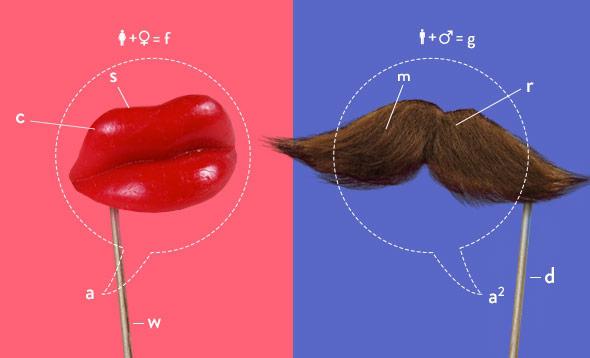In the course of researching our book, we met with humorists all over the world—and in most cases, those humorists were male. In Los Angeles, the vast majority of the stand-up comedians we spoke to were men. When we got a behind-the-scenes look at the New Yorker cartoon process in Manhattan, nearly all the cartoonists were men. And when we visited a comedy training school in Tokyo, which is essentially mandatory for would-be Japanese comedians, there were a total of two women in both 60-student classes we sat in on.
Our experience on the road might seem to bolster the late Christopher Hitchens’ claim that women aren’t as funny as men. As others have noted, Hitchens is hardly the only one who believed this; comedic minds from Jerry Lewis to Adam Carolla have espoused similar views. A recent experiment involving New Yorker cartoons found that both male and female participants were more likely to attribute funny cartoon captions to men.
But are women really less funny than men? In the nascent years of humor research, scientists seemed to think so. Researchers found that men were more likely than women to enjoy jokes and cartoons presented to them, especially if the jokes were sexual or aggressive. But later reviews of these experiments found the conditions were less than ideal. Many of the jokes used in the studies were downright sexist, like this one: “Why did the woman cross the road? Never mind that, what was she doing out of the kitchen?!” So did female participants not enjoy jokes? Or was it just that they didn’t enjoy jokes at their own expense?
More recently, Rod Martin, author of The Psychology of Humor and one of the unofficial deans of humor research, looked into the question of gender and humor. He reviewed all the valid experiments, from comedy appreciation surveys to joke-telling contests to self-reported questionnaires to observational experiments, and came to a conclusion that he relayed at a recent International Society for Humor Studies conference: “I think Christopher Hitchens is wrong.” By nearly every scientific measure, men and women are far more alike than different in how they perceive, enjoy, and create humor. This goes for racy stuff, too: A 1998 review of 23 studies dealing with sexual jokes and cartoons found that women liked the dirty jokes just as much as men—so long as the jokes involved weren’t sexist.
So where did this notion that men are funnier than women come from? Maybe it’s simply because comedy, from the vaudeville scene of the early 20th century to stand-up today, has traditionally been a male-dominated field.
That said, studies have found differences in the way men and women talk about humor in the context of dating and mating. In 2011, researchers analyzed more than 250 online dating profiles posted by people in London and several Canadian cities. They found that men were nearly twice as likely to boast of their humor-production abilities (“I’m an aspiring stand-up comic”), while women were nearly twice as likely to be looking for a humor producer (“I want someone who can make me giggle”).
The discrepancy could be linked to humor’s evolutionary origins. A sense of humor in men could be seen as a sign of intelligence, social desirability, and overall genetic fitness. So guys might have an incentive to show off their comedy chops, while women are incentivized to be on the lookout for the funniest possible mate. According to evolutionary psychology, male mating goals are different: Men theoretically look for a healthy mate—i.e., someone young, healthy, and attractive—before they look for signs of intellect and social intelligence, so a woman’s sense of humor would matter less.
Then again, humor seems to matter for both men and women. A survey of 700 men and women discovered that people considered humor among the most important of all characteristics when choosing a partner, romantic or otherwise. And studies of happy marriages, especially those lasting more than half a century, find spouses often ascribe their marital bliss in part to laughing together.
But research also suggests the opposite is true: Humor can signal doom for a relationship. Studies have found that dating couples who exhibit strong senses of humor are more likely than others to break up. As paradoxical as that sounds, it makes sense. Since humor is such a highly regarded trait, it’s more likely that others will be enticed by these attractively funny people and lure them away from their partners.
So there may be both social and biological incentives for men to joke around more than women. But that doesn’t mean that guys are necessarily funnier. Author Peter McGraw recently asked a couple of his classes to take part in a joke-writing competition. Working with colleagues Caleb Warren and Kathleen Vohs, he found that of the 50 or so jokes submitted, those written by men were rated, by a second group of students, to be ever so slightly funnier than those by women, but the difference was so minor it wasn’t statistically significant. On the other hand, the guys’ jokes were far more offensive. Two of the top three funniest jokes were written by men, but they were both rated highly distasteful—one dealt with misogyny and the other the Penn State football sex abuse scandal.
The joke ranked funniest of all was also somewhat offensive, as it invoked a racial stereotype—but it seemed to hit the sweet spot between vulgarity and hilarity. Followers of Christopher Hitchens, take note: The winning gem was written by a woman.
